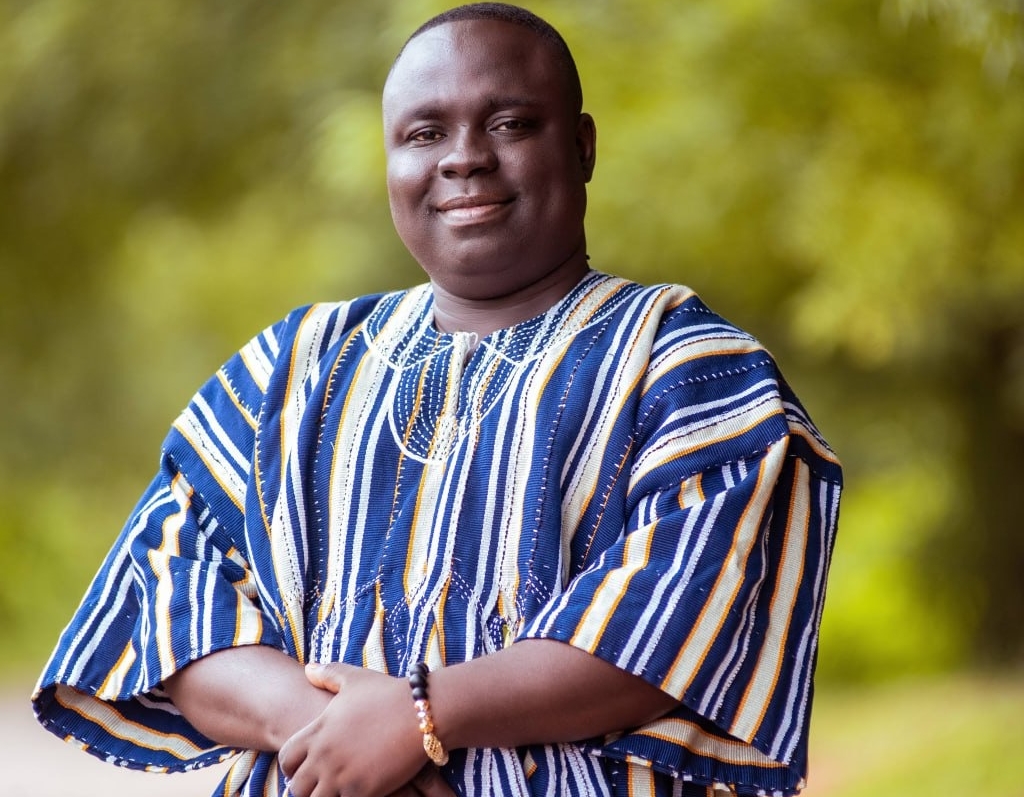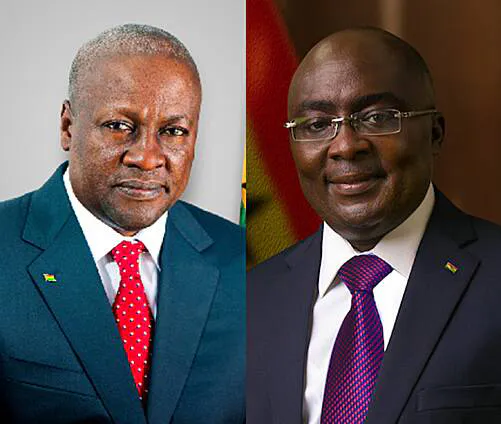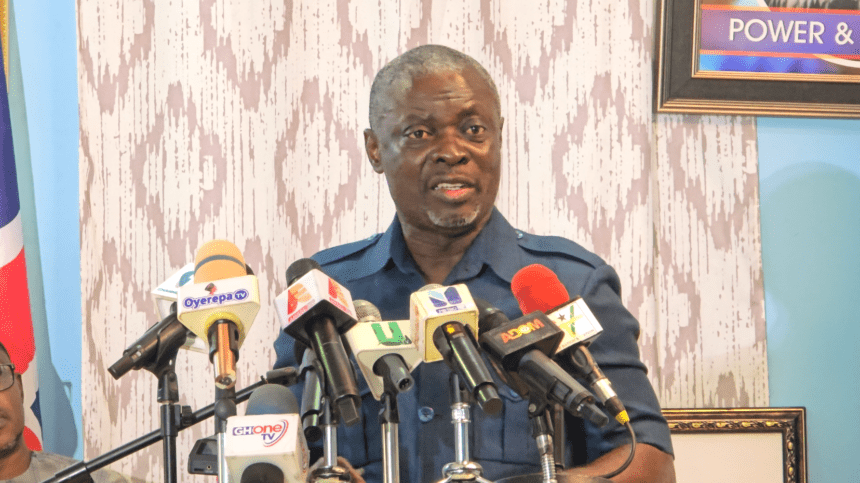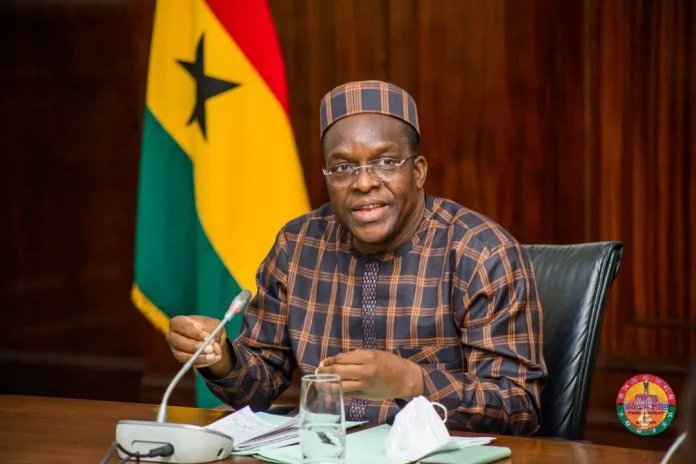Politics
Ghana’s Independence at 67: Could we be better or worse without media and civil society contributions?
Published
9 months agoon
By
Melody 911FM
As Ghana celebrates its 67th anniversary of independence, the nation proudly embraces the theme “Our Democracy, Our Pride,” it is important to reflect on our journey of freedom and self-determination and the essential roles that the media and a vibrant civil society have played in shaping the country’s democratic ethos.
This year’s theme prompts a critical examination: Could Ghana have been better or worse off without the contributions of these foundational pillars to its democracy?
The State of Free Press and Freedom of Speech
Freedom of speech is often heralded as the bedrock of democracy, and for a country like Ghana, which has been a beacon of democratic principles in Africa, its state reflects the nation’s democratic health.
Over the years, Ghana has enjoyed relatively high levels of press freedom compared to its African counterparts.
This freedom has been crucial for accountability, governance, and civic participation. However, challenges persist, including instances of censorship, intimidation, and the recent concerns over digital rights and freedoms.
These incidents raise questions about the robustness of Ghana’s commitment to free speech as an indispensable element of its democracy.
Without the contributions of the media, Ghana’s democratic journey could be markedly different.
A landscape without the rigorous oversight of the media might lead to unchecked government power, diminished accountability, and an uninformed populace, potentially eroding the very foundations of democracy and governance.
The role of the press in fostering public debate, exposing corruption, and advocating for reforms has been instrumental in Ghana’s development.
Thus, the absence of media could have led to a scenario where governance lapses go unchallenged, and public policies are made without the necessary scrutiny and debate.
Progress and setbacks in media development
The media landscape in Ghana has seen significant growth, with an increase in the number and diversity of media outlets. This growth has improved information dissemination and provided a platform for diverse voices. However, media development is not without its challenges.
Issues such as media polarization, lack of professional training, and financial sustainability hamper the quality of journalism and the industry’s development. The rise of social media, while enhancing information flow, has also introduced challenges related to misinformation and digital harassment.
The Vital Role of Civil Society
Civil society organizations (CSOs) in Ghana have been crucial in advocating for social change, human rights, and democratic governance.
They provide a voice for the marginalized, influence policy, and hold public officials to account. The vibrant civil society space in Ghana has contributed significantly to policy development, social justice, and community empowerment.
Imagining Ghana without the contributions of civil society presents a bleak picture. Without these organizations, many of the advances in human rights, accountability, environmental protection, and social welfare might not have been realized.
Civil society acts as a catalyst for social change and a crucial mechanism for public participation in governance.
Their absence could have resulted in a more disconnected government, less responsive to the needs and rights of its citizens.
The Shrinking Space for Civil Engagement
Civil society organizations (CSOs) in Ghana have historically been at the forefront of policy shaping, social justice advocacy, and the provision of essential services that align with and complement government initiatives.
These organizations represent a vital component of Ghana’s democratic fabric, ensuring that a diverse range of voices are heard and contributing to a more equitable and just society.
However, recent years have witnessed a concerning contraction in the operational space available to these critical voices.
Legislative and regulatory hurdles, coupled with financial constraints, have increasingly impeded the ability of CSOs to function effectively and fulfil their crucial roles. This diminishing space for civil engagement not only hampers societal progress by stifling innovation and advocacy but also strikes at the very heart of participatory democracy.
Limiting the avenues available for citizen engagement and critical discourse undermines the democratic principle that governance should be conducted with the participation and for the benefit of all citizens.
The challenges faced by CSOs in Ghana reflect a broader trend observed in various parts of the world, where civic spaces are under pressure from various fronts, including political, legal, and financial.
The contraction of civil society space in Ghana demands urgent attention and action from all stakeholders involved, including the government, civil society itself, the media, and the international community.
Ensuring that CSOs can operate without undue hindrance is essential not only for the health of Ghana’s democracy but also for the continued progress and development of the nation.
Engaging in open dialogue, revisiting restrictive policies, and fostering an environment that values and protects civic engagement are critical steps towards reversing this trend and reinforcing the foundations of participatory democracy in Ghana.
The Critical Alliance of Media and Civil Society in driving Ghana’s development
The symbiotic relationship between the media and civil society in Ghana forms the bedrock of the nation’s democracy and the engine driving its sustainable development.
This dynamic interaction, where the press amplifies issues championed by civil society and, in turn, civil society imbues these issues with depth, context, and mobilization, is crucial for the country’s progress, especially as it marks its 67th year of independence.
The partnership not only strengthens the fabric of democracy by providing a platform for voicing concerns, highlighting injustices, and advocating for policy changes but also plays a pivotal role in enhancing government accountability and transparency.
Investigative journalism, enriched by insights from civil society, exposes corruption and malpractice, fostering public debates and sometimes prompting policy reversals or legal actions.
This collaboration has proved instrumental in shaping policies and advancing sustainable development across various sectors such as health, education, environmental protection, and social welfare.
Civil society’s grassroots insights complement journalistic narratives, placing critical issues on the national agenda and influencing policy formulation and implementation. Moreover, this partnership fosters enhanced civil engagement by empowering citizens to participate more actively in the democratic process, informed about their rights, policy changes, and government initiatives.
Despite the undeniable benefits of this interplay, challenges persist, including threats to press freedom, shrinking spaces for civil society, and the complications introduced by digital misinformation.
Yet, the resilience stemming from the solidarity between media and civil society acts as a bulwark against these challenges, highlighting the strength found in unity. This alliance is not only essential for navigating the complexities of modern governance and development but also stands as a result of the collaborative spirit driving Ghana’s democratic journey forward.
Looking ahead
Reflecting on Ghana’s 67 years of independence, the nation finds itself at a pivotal crossroads, celebrating its achievements while also facing critical challenges.
Ghana has made commendable strides in governance, economic development, and social cohesion, embodying the resilience and dynamism of its institutions and people.
Yet, emerging challenges to democratic freedoms, civil society space, and media development necessitate a vigilant commitment to the democratic principles that have been the nation’s guiding light since independence.
The interplay between the media and civil society has been instrumental in fostering an informed, engaged public, ensuring accountability and transparency, and influencing policy for the betterment of all Ghanaians.
As we embrace this year’s theme, “Our Democracy, Our Pride,” it is crucial to reaffirm our dedication to these pillars of democracy.
Their continued vitality, especially in an era of digital transformation and global challenges, is essential for Ghana’s ongoing progress and well-being. The celebration of independence, therefore, is not just a moment of pride but a call to action for a more inclusive, democratic, and prosperous Ghana. Looking ahead, the future of Ghana’s democracy hinges on nurturing the symbiotic relationship between media and civil society.
This partnership is paramount for maintaining a robust democracy and advancing a development agenda that reflects the nation’s aspirations for a better future.
As Ghana commemorates 67 years of independence, it’s a moment to reflect on our collective journey, address the areas requiring urgent attention, and renew our commitment to safeguarding the gains made. Together, we can ensure that Ghana’s growth trajectory remains forward-moving, rooted in the ideals of freedom, justice, and equality.
You may like
Politics
Bawumia- “Mahama’s Economic Record Bad”
Published
2 weeks agoon
November 11, 2024By
Melody 911FM
The presidential candidate of the New Patriotic Party (NPP), Vice President Dr. Mahamudu Bawumia, has openly criticised former President John Dramani Mahama’s economic management, describing it as the worst among Ghana’s Fourth Republic leaders.
According to him, during Mr. Mahama’s tenure, the economy experienced substantial setbacks across multiple sectors, marked by soaring inflation, sluggish growth, and increasing unemployment.
Speaking at the Ghana CEO Presidential Gala in Accra last Thursday, Dr. Bawumia asserted that his criticism was based on hard economic data rather than partisan views.
He contrasted this with what he described as Ghana’s improved economic trajectory under NPP leadership, asserting that Mr. Mahama’s tenure represented a “decisive failure in economic stewardship.”
Dr. Bawumia stressed that his analysis was intended to highlight the need for sound economic management and that his remarks were meant to shed light on measurable outcomes of Mr. Mahama’s policies, which he said weakened the country’s economic resilience.
The NPP presidential candidate expressed his commitment to building on the progress achieved under the Akufo-Addo administration.
He underscored the importance of data-driven policies and positioned himself as the candidate most capable of navigating Ghana through future economic challenges.
“Despite the impact of global economic challenges, it might surprise some, including the former president himself, that his administration ranks the lowest in economic performance among all Fourth Republic leaders,” Dr. Bawumia reiterated.
He continued, “Yet, he speaks about our economic performance as though his was superior.”
Business Development
Dr. Bawumia also used the opportunity to reaffirm his commitment to strengthening business development in the country, stressing that resilient businesses are foundational to a thriving economy.
He praised the role of the private sector in creating jobs, driving innovation, and fostering sustainable growth.
The NPP flagbearer detailed policies introduced by the current administration to support Ghanaian businesses, including initiatives aimed at enhancing entrepreneurship, expanding access to credit, and advancing digitalisation.
According to Dr. Bawumia, these steps are critical to building a competitive, innovative, and resilient business sector.
He promised that, if elected, he would continue to prioritise business growth in order to ensure the Ghanaian economy remains vibrant and competitive on a global scale.
“Ladies and gentlemen, as you may know, Bawumia means business! From banking to vice presidency, my commitment to business development has been unwavering.
“Strong businesses lead to a strong economy—show me a prosperous nation, and I’ll show you resilient businesses behind it,” he concluded.
Politics
NPP, NDC have mismanaged Ghana – GUM
Published
2 weeks agoon
November 11, 2024By
Melody 911FM
The Ghana Union Movement (GUM) has criticised the New Patriotic Party (NPP), and the National Democratic Congress (NDC) for “mismanaging the country” and supervising the sale of state-owned businesses bequeathed by previous governments.
The Party said the sale of state-owned factories to private individuals and failure to revive defunct state enterprises largely accounted for the growing youth employment situation that had bedeviled the country.
These were contained in a news release issued by the Party’s founder and leader, Reverend Christian Kwabena Andrews, and shared with the Ghana News Agency.
The GUM urged the youth to “be concerned about their future” and vote to break the duopoly enjoyed by the NPP and NDC for decades.
“Embracing both NDC and NPP as a party is just endorsement of the continuity of the Ghanaian predicament. Ghanaian youth must rise to vote massively against these parties, because they were the source of our problems today,” it said.
The GUM said the slow pace of development since the commencement of the Fourth Republic in 1992 justified the call for the “total overhaul” of the 1992 Constitution “considering the mess caused by both NDC and NPP government respectively.”
The Party proposed the adoption of what it termed as “Hybrid African Democracy” which it said was suitable governance model for the country.
“The current model was copied line, hook, and sinker from the West, where they have established and structured institutions to make their democracy work,” it said.
The GUM also called for downsizing of Parliament to reduce the cost of running the business of the House.
The Party said that salaries and benefits awarded to 275 Members of Parliament as well as Article 75 Office Holders “drain the national purse than building it.”
“We urge the public to vote for the Ghana Union Movement for a reliable, better Ghana with the Ghanaian youth as its core,” the Party said.
The GUM caused a stir when it placed third in the 2020 presidential election, beating the traditional Convention People’s Party, People’s National Convention, and the Progressive People’s Party.
The party garnered 105,548 votes, representing 0.805 per cent of the total ballots cast.
Rev. Andrews has indicated that the Party would build on its achievements in 2020 and affect the 2024 presidential and parliamentary elections.
The GUM has promised to establish factories in every region and operate a free port to boost economic activities and improve the living conditions of the people.

In a significant development, Ghana’s Parliament Speaker, Alban Sumana Kingsford Bagbin is set to address the media on Wednesday, November 6, 2024.
The press conference, scheduled for 2:00 pm at the Justice D.F. Annan Auditorium, Job 600, Parliament House, aims to tackle critical issues affecting Ghana’s parliamentary democracy.
Recent Developments
Alban Bagbin’s address comes amidst significant political developments in Ghana.
As Speaker, he has played a pivotal role in shaping the country’s legislative agenda.
His leadership has been marked by efforts to strengthen parliamentary oversight and promote transparency.
The engagement seeks to provide a platform for the media to discuss pressing concerns impacting Ghana’s democratic growth.
The Speaker, Alban Bagbin, is expected to shed light on recent events that have shaped the country’s political landscape.

Bawumia- “Mahama’s Economic Record Bad”

Peter Okoye reacts to alleged song ownership by twin brother
















